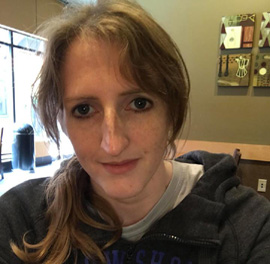Disclaimer: This blog is about sex, and how writers approach it using word choices specific to their demographic audience. If you don't wish to continue reading, I've conveniently broken the page.
In children's novels, we stick to small words with the occasional 3-, 4-, or 5-syllable adult word added to teach them and expand their vocabulary. We teach them to see Spot, and to see Spot run. Then we teach them wonderful and fantastic and horrible so they learn to qualify their experiences as they grow up.
For young adults, that learning experience shifts to maturity and euphemisms for sexual awakening. Pick up any young adult novel right now, and the girls speak of heat rising to their cheeks from a simple touch. We teach them to understand the euphemism for arousal and we teach them the consequence of a kiss. A kiss in a young adult novel is the way we teach teens about sex and how to value sex. You don't just kiss anyone, you kiss someone who's special, someone who's earned the right to be kissed by you.
That is conservative thinking that we have been programmed to teach teens about, and I would speculate that that conservativism has given rise to the new-adult genre. New-adult deals with a demographic audience aged 18-30 (arguably 18-25), and so it takes the liberal approach to discussing sex. There's obviously more consequences for a new-adult: life after primary school, entering the job market, moving out of their parents' house, sex with new/multiple partners. The kid gloves come off, and the subjects are discussed openly and treated as the natural path to adulthood and independence.
As far as sex is concerned, new-adult fiction discusses it in terms of protection, pleasure, expectations, consequences without euphemisms, but it refrains from the "clinical" terms of adult fiction. It's not penis, breasts, or vagina yet, it's cock and boobs, but there's still the dance around vagina through euphemisms because, "Hey, there's not really a great alternative for vagina without sounding raunchy".
So what do we do, for those of us who are identifying our upcoming novels as new-adult? How do we respond to the touchy subject of vaginas and their many euphemisms?
In my case, I'm relying upon my characters. None of them would say twat, cunt, snatch, sheath, hole, or sex, but! none of them would say vagina, either, and that's because it's too formal. Yes, the majority of my characters are nobles, but they're not going to be formal when they're thinking of, or participating in, sex.
So what am I to do? I have to look to my characters and rely upon them to know their world, to teach me their world. My world grew out of Celtic-Germanic Paganism where agriculture and fertility are big motifs to the culture; therefore, I looked to the history of fertility and female symbols. I found one that I like, too. The cowrie shell has a history of association with fertility and women, wealth and currency. It's got value, it's got history, and importantly, it's got the shape.
A cowrie shell looks like a vagina, why not make it synonymous to one?
That's how my characters feel, and I agree with them. They have claimed cowrie as the sexy alternative for vagina. Cowrie is the word they think of when they think of sex. Men and women in my novel's world think about the shape of a woman's cowrie, the feel of a woman's cowrie. Vagina is clinical for them, cowrie sexy, cunt vulgar, sheath euphemistic.
If/When you read my novel, and you see the word cowrie used in a sexualized situation, know that it means vagina.
Subscribe to:
Post Comments (Atom)
______________________________________________________________________
 |
Ash Litton is a writer and lover of sci-fi, fantasy, and all things fictional. She is the author of Thoroughbred, Evening Hallow, Comeuppance, and Cabover Cabaret, and works on other Appalachian Dream Tales between her ongoing novel projects. She's also written No Diet, No Surgery, No Sweat, an ebook chronicling her weight-loss journey. When she's not writing, she's drawing, and when she's not doing either of those, she's dreaming up new projects to work on. Born and raised in rural West Virginia, Ash has always wondered what things lay hidden in the hills around her. She attended West Virginia University, where she studied the English language before returning home to her family in rural West Virginia. |
No comments:
Post a Comment